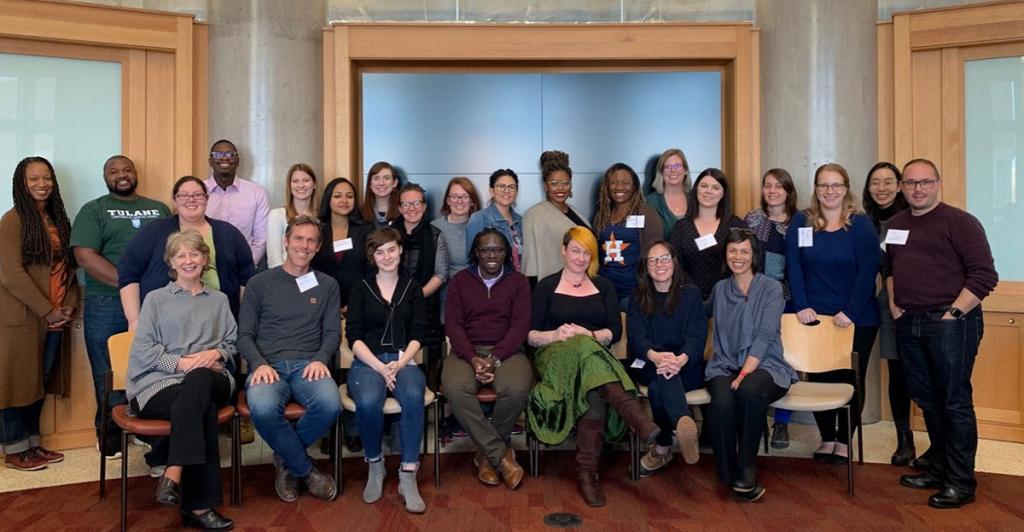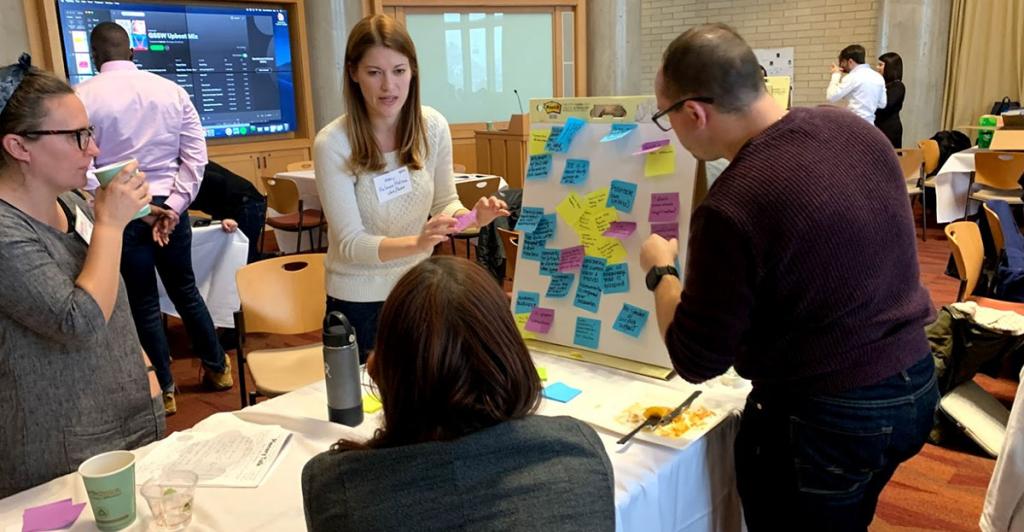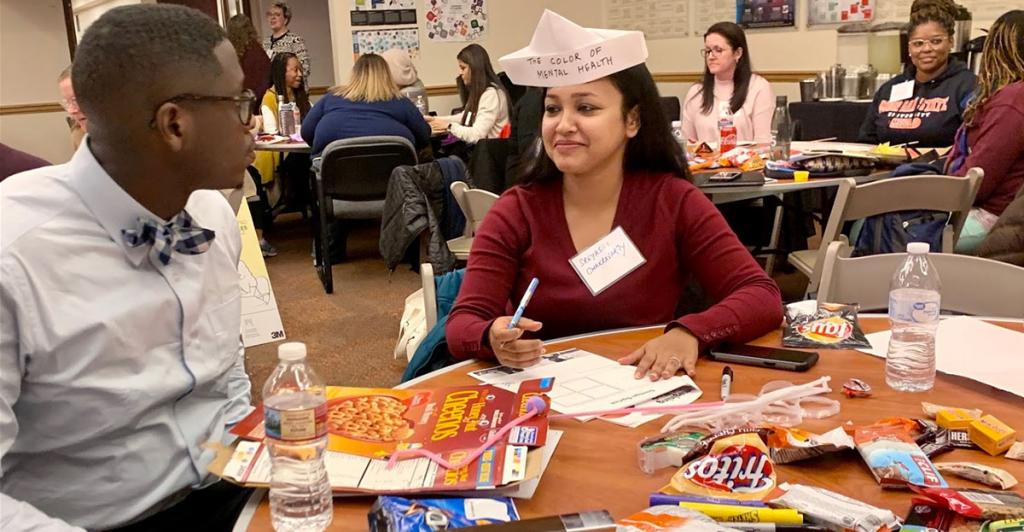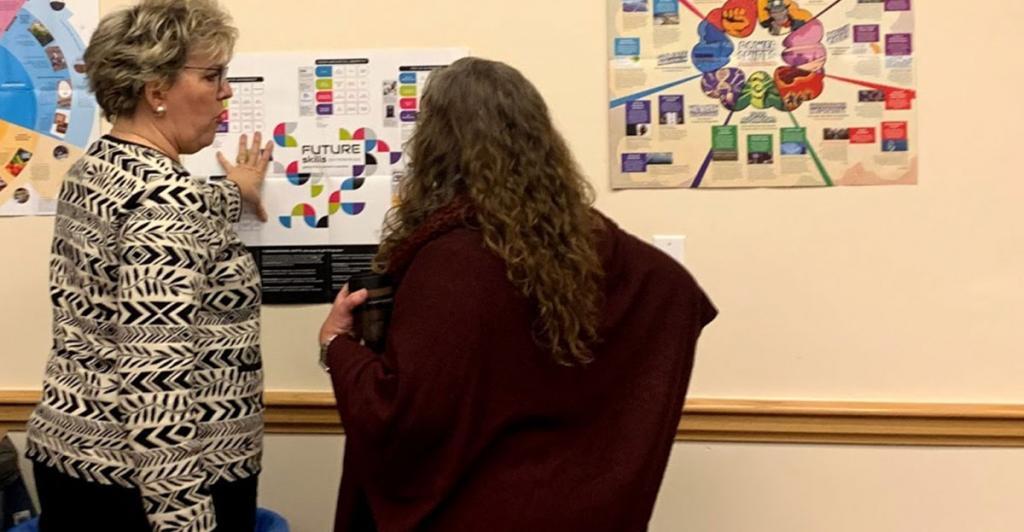A Social Work Leader
GSSW Professor Kimberly Bender embodies the best in social work research and education
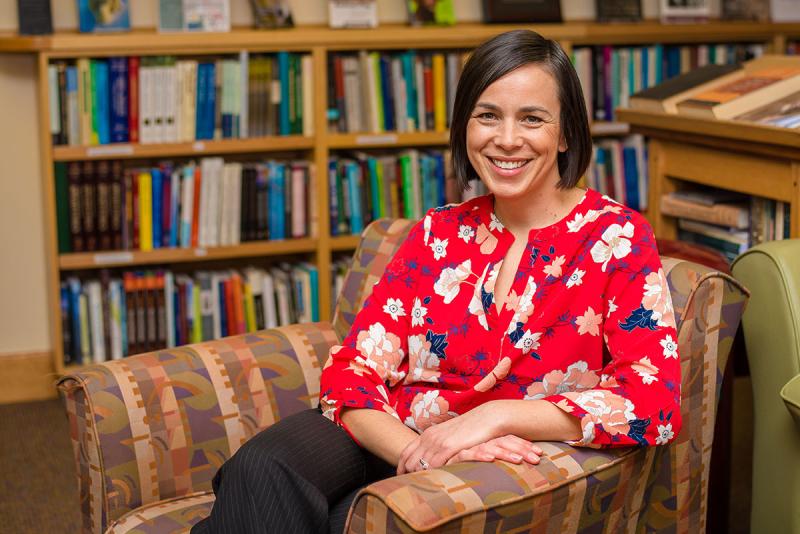
University of Denver Graduate School of Social Work (GSSW) Professor Kimberly Bender could easily be defined by her long list of accomplishments as a social work researcher, teacher and administrator. In January, Bender was inducted as a Fellow of the American Academy of Social Work and Social Welfare, joining GSSW Professors Jeffrey Jenson (inducted in 2010) and Lena Lundgren (inducted in 2016) in the ranks of the nation’s premier social work scholars and practitioners. She is, objectively, among the best in the profession.
But what her students, colleagues and community partners value most is not reflected on her CV: that she is curious, creative, collaborative and caring. Ultimately, they say, it is excelling at relationships that best defines Bender.
“She’s the all-around scholar, teacher, mentor — she does it all well,” says Jenson, who coauthored a book with Bender and works closely with her on the Coalition for the Promotion of Behavioral Health — an initiative of the Grand Challenge to Ensure Healthy Development for All Youth. “She has a great combination of competence, skills and knowledge. She is kind and compassionate combined with being smart and inquisitive, and she lives that out in how she interacts with her students and colleagues at GSSW and nationally.”
Building Relationships Through Research
“What makes Kim an incredible researcher is her capacity to understand and truly value relationships,” says Jonah DeChants, PhD ’19, a postdoctoral fellow at the Colorado State University School of Social Work. “There is so much pressure to produce and think about our work in a way that doesn’t prioritize relationships, but she cares just as much about the process as the outcome. That’s a strength and something I don’t always see among other folks in the academy.”
Bender’s research focuses on young people experiencing homelessness to understand their needs, engage them in social-change projects and develop skills that can prevent adverse experiences. She serves as co-PI on a six-state, multi-site research project to better understand risk and protective factors among youth experiencing homelessness. Funded by the National Institute on Drug Abuse, she also serves as PI on a three-year randomized trial of a mindfulness-based intervention to prevent victimization and substance among youth in emergency shelters.
It’s important work, but she’s most passionate about a participatory research study of a peer support program in Colorado. It marks a significant shift in her research agenda, moving from quantitative survey and intervention methods to deeper participatory, community-engaged work.
In partnership with the Colorado Coalition for the Homeless, Bender is looking at a mutual aid program that employs young people who experienced homelessness or addiction as peer navigators who go into the community, build relationships with other youth experiencing homelessness and provide support.
“The current service model is not set up to prioritize building relationships,” Bender says. “We’re interested in how peers can create a sense of belonging, community, and nonjudgmental and flexible support, and how young people think about and build social capital.” The research team is developing insights through a series of photovoice projects, structured journaling and interviews with youth and peer navigators.

